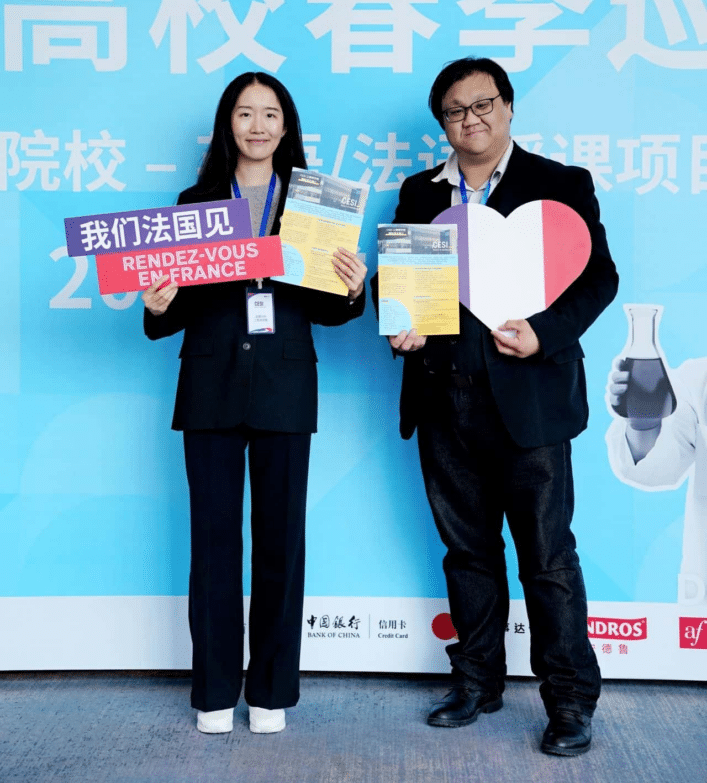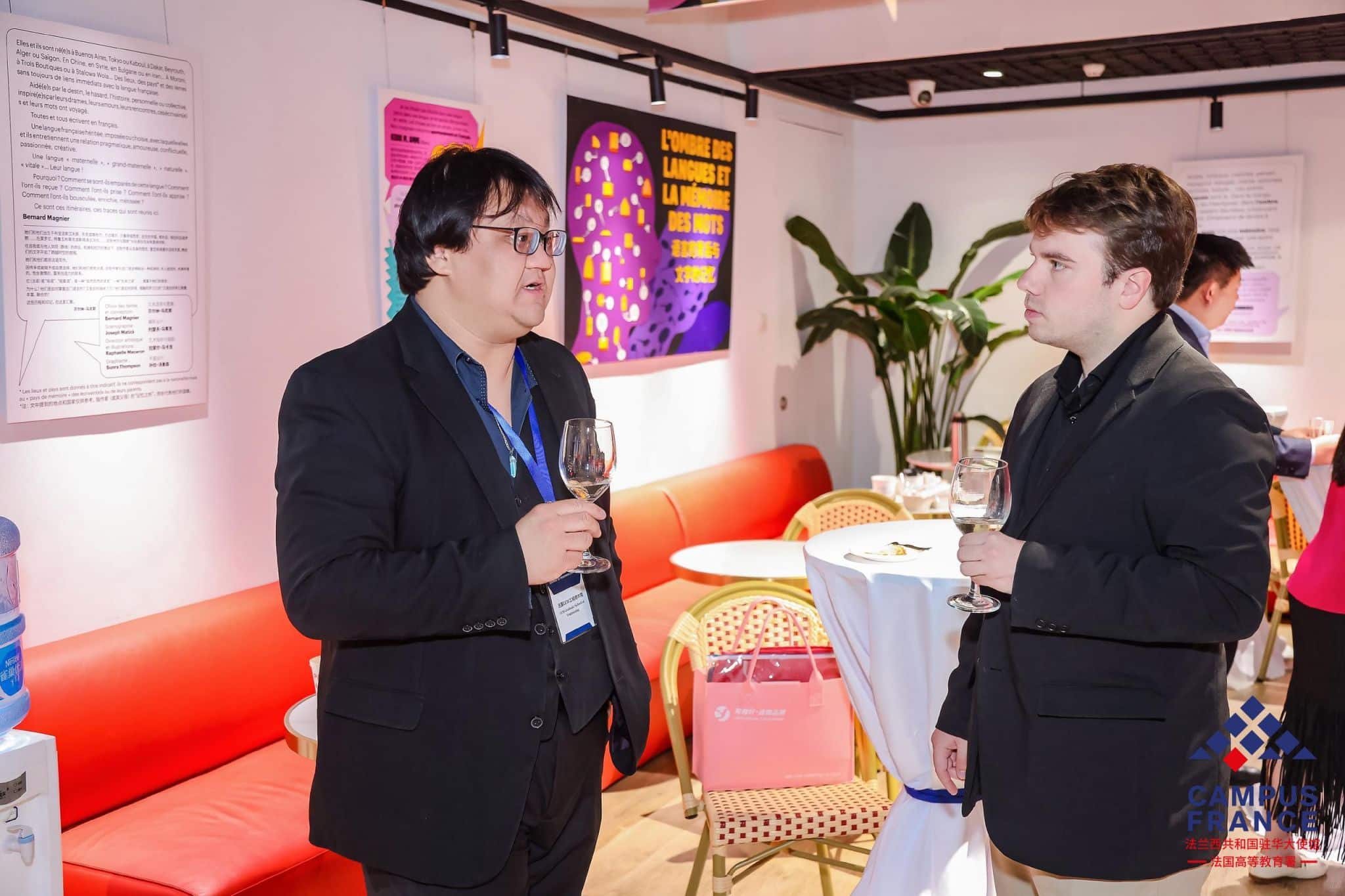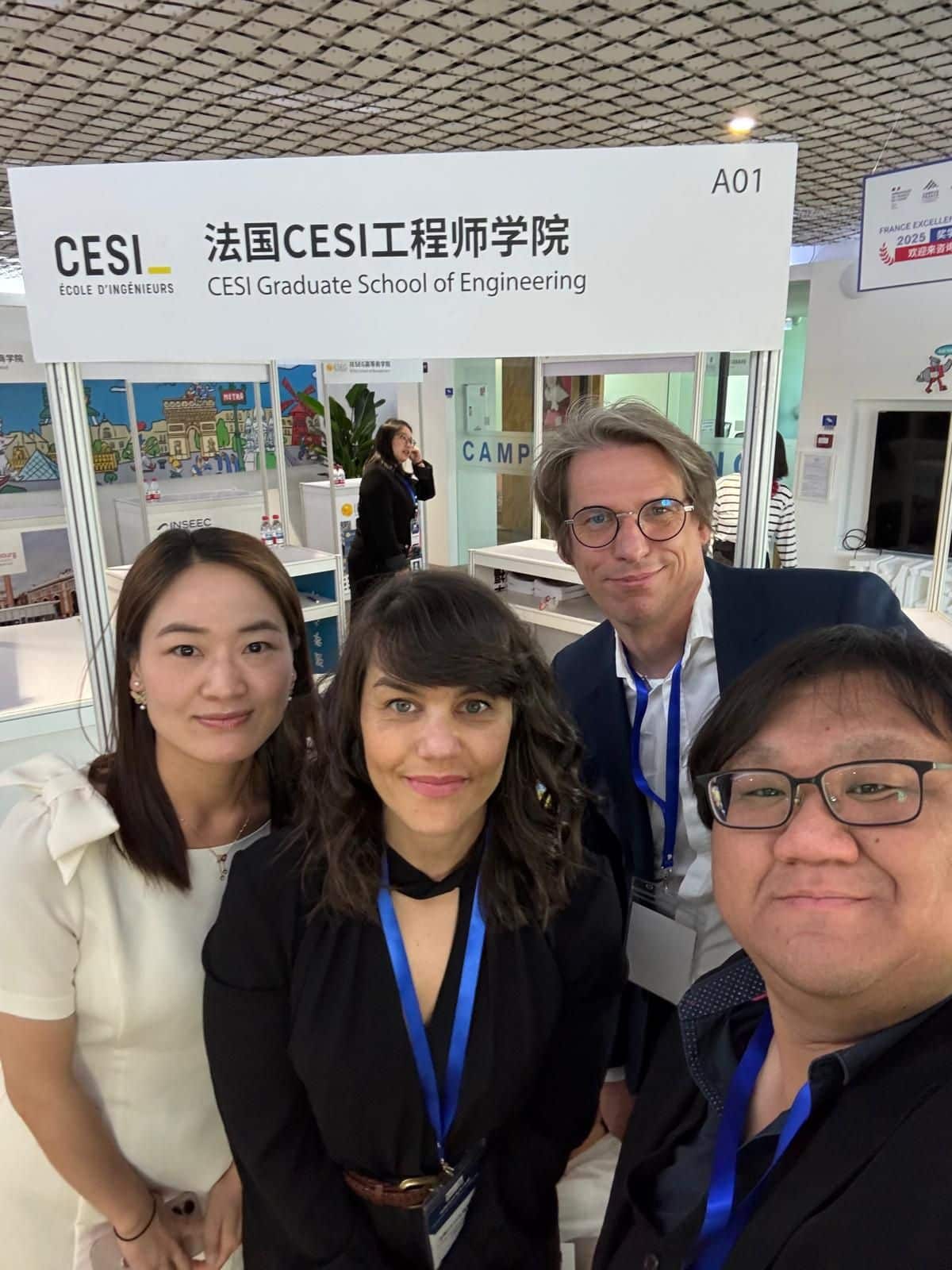Conquering China: Valentin Huyenh’s Experience Report

In this page :
- Professional background
- Cultural and educational differences
- Impressions from his last mission in China
As part of its commitment to international outreach and the strengthening of academic partnerships abroad, CESI recently carried out several institutional missions to China. Valentin Huyenh, a faculty member and academic coordinator based at the Nanterre campus, took part in this initiative. He shares his reflections, key observations, and the prospects for educational cooperation between France and China.
Professional background

Valentin, could you briefly introduce yourself?
I joined CESI in 2023 as a teacher and I’m responsible for the teaching of several classes (GMSI, TSR, ASR and CDA)* which award RNCP professional Bachelor level qualifications.
What made the strongest impression on you during your mission in China?
From the moment I joined CESI, I was entrusted with responsibilities related to international development in addition to my academic duties. This included engaging with Chinese institutions based in France (such as the embassy, educational agencies, and Campus France) and preparing for future overseas initiatives.
Once in China, I participated in student recruitment fairs and engaged directly with local academic institutions. I worked closely with staff responsible for international relations to explore new opportunities in Asia, particularly in China and Taiwan.
My first mission to China took place in November 2023, as part of the N+i program, a French network of engineering institutions dedicated to welcoming international students into higher education. This mission offered valuable insight into a distinctly different educational system and allowed us to lay the foundation for future collaborations with Chinese universities.
During the 2024 and 2025 missions, CESI was represented more prominently, reinforcing our institutional presence and enhancing our visibility within the region.
*GMSI : IT Maintenance and Support Manager
TSR : IT Systems and Network Technician
ASR : Systems and Network Administrator
CDA : Application Developer and Software Designer
Cultural and educational differences

From your perspective, what are the key differences between the French and Chinese educational systems?
The French system places strong emphasis on practical learning and professional integration, primarily through hands-on projects and collaborative work. In contrast, Chinese education remains largely theoretical and academic, which can present challenges for young graduates entering the job market. This structural gap is one of the factors contributing to high youth unemployment in China. As a result, many Chinese families show strong interest in international study opportunities, particularly in France, where the focus on applied skills is seen as a distinct advantage.
Do you think group work is one of the strengths of the French education system?
Absolutely. Project-based learning and teamwork are core elements of the French approach and are highly valued by employers. At CESI, we reinforce these pedagogical principles through close collaboration with major industrial partners, enabling us to align our programmes with the evolving needs of the labour market. This adaptability is one of the factors that has generated significant interest from Chinese institutions.
Did your knowledge of Mandarin play a part in your mission?
Undoubtedly. In recent years, the use of English in China has declined, partly due to government policies that encourage the increased use of Mandarin. Being able to speak the language enabled me to navigate daily interactions more easily, whether in taxis or restaurants, and also allowed me to engage more effectively in institutional discussions. This linguistic ability helped to build trust with our partners and demonstrated a genuine commitment to intercultural engagement.
Impressions from his last mission in China
Do you have a particular memory or anecdote that stands out?
What struck me most was the highly idealised image that many Chinese people have of France, which is often shaped by the media and popular culture, such as the series “Emily in Paris“: the baguette, the beret, and French elegance. Many were surprised to learn that we also wear jeans and t-shirts!
I was also impressed by the overall sense of safety: people routinely leave their phones unattended in cafés, and everything, from taxis to shops, is closely monitored. This creates a general atmosphere of security, which contrasts with the greater vigilance required in many public spaces in France.
If you had to summarise your mission in one sentence, what would it be?
I would say : “To increase CESI’s visibility in China.” We have moved beyond initial discovery toward the signing of concrete partnerships with leading institutions, opening up exciting new opportunities for internships, student exchanges.